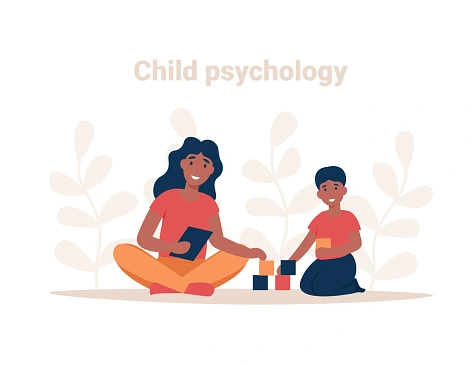Understanding Child Psychology: Nurturing the Minds of the Future
Introduction:
Child psychology is a field that focuses on the mental, emotional, and behavioral development of children from infancy through adolescence. It explores the factors that shape a child’s growth and aims to understand their unique perspectives, emotions, and cognitive processes. By delving into the intricate workings of a child’s mind, psychologists can provide invaluable insights into their development and well-being. This article explores the key aspects of child psychology and sheds light on the importance of nurturing a child’s mental health.
I. The Developing Mind:
Cognitive development is a crucial aspect of child psychology. It involves the progressive growth of a child’s ability to think, reason, problem-solve, and remember. Jean Piaget, a renowned Swiss psychologist, proposed a theory of cognitive development, highlighting four stages: sensorimotor, preoperational, concrete operational, and formal operational. Each stage presents unique characteristics, building upon the previous one, and shaping a child’s cognitive abilities. Understanding these stages can aid parents, educators, and caregivers in creating age-appropriate environments to support a child’s cognitive growth.
II. Emotional Intelligence:
Emotional intelligence refers to a child’s ability to recognize, understand, and manage their own emotions, as well as empathize with the emotions of others. Emotionally intelligent children tend to have better social relationships, exhibit greater self-control, and cope effectively with stress. Parents and caregivers play a pivotal role in fostering emotional intelligence by providing a safe and nurturing environment, encouraging emotional expression, and teaching problem-solving and coping skills. By supporting a child’s emotional well-being, we lay the foundation for their overall psychological development.
III. Social Development:
Social development encompasses a child’s ability to interact with others, form relationships, and navigate social situations. From early interactions with family members to later interactions with peers, social experiences greatly impact a child’s development. It is important to encourage positive social interactions, promote empathy and understanding, and teach effective communication skills. By providing opportunities for socialization and fostering a sense of belonging, we can help children develop healthy relationships and build strong social skills.
IV. The Role of Play:
Play is an essential component of child psychology, as it contributes to a child’s overall development. Play allows children to explore, experiment, and make sense of the world around them. Through play, children develop cognitive, emotional, and social skills, as well as creativity and imagination. It is crucial for parents and educators to recognize the value of play and provide ample opportunities for unstructured and imaginative play. By embracing play, we facilitate holistic development and create a nurturing environment for children to thrive.
V. Nurturing Resilience:
Children, like adults, face challenges and setbacks. Developing resilience is crucial for their mental well-being. Resilience enables children to adapt, bounce back from adversity, and maintain a positive outlook. Building resilience involves fostering a supportive environment, encouraging problem-solving skills, promoting a growth mindset, and teaching stress management techniques. By nurturing resilience, we equip children with the tools to navigate life’s ups and downs and promote their mental health.
Conclusion:
Understanding child psychology is essential for creating an environment that supports a child’s holistic development. By unraveling the intricacies of cognitive, emotional, and social development, we can foster a child’s growth and well-being. By nurturing their minds, we empower them to become resilient, empathetic, and intellectually curious individuals. As caregivers, parents, and educators, it is our responsibility to prioritize child psychology and provide the necessary support for the minds of the future.
![]()





